News
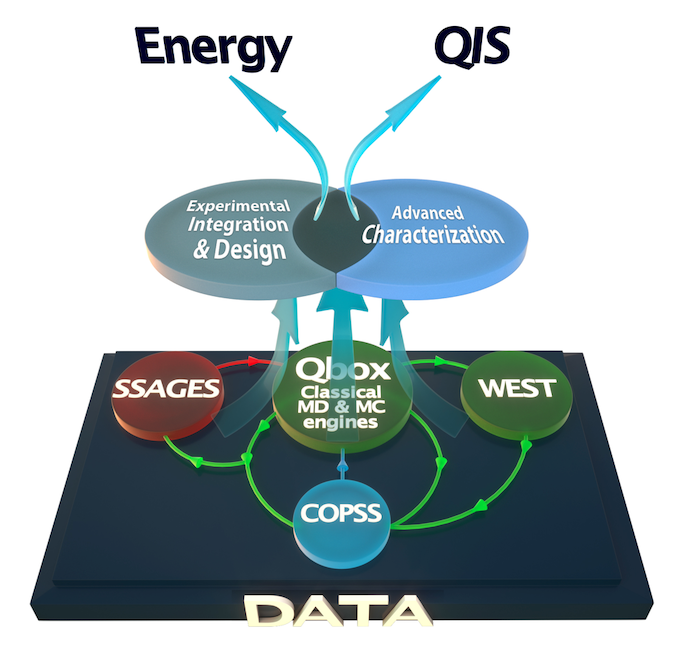
Department of Energy announces renewal of MICCoM (6/13/19)
The US Department of Energy has announced a $32 million investment to accelerate the design of new materials through use of supercomputers. The funding supports the renewal of the Midwest Integrated Center for Computational Materials (MICCoM) as well as six other projects at national laboratories and universities. These projects will develop widely applicable open source software utilizing DOE’s current leadership class and future exascale computing facilities. Projects will provide software platforms and data for the design of new functional materials with a broad range of applications, including alternative and renewable energy, electronics, data storage and materials for quantum information science.
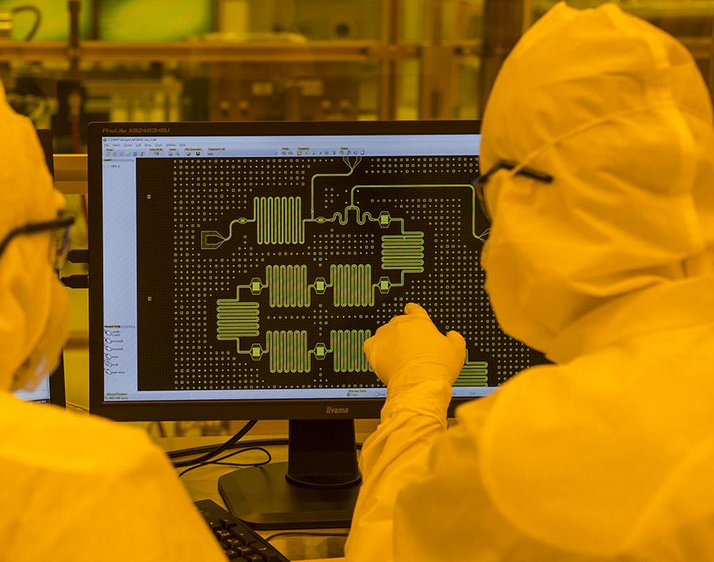
$100 million commitment launches Pritzker School of Molecular Engineering (5/28/19)
The University of Chicago announced a $100 million commitment from the Pritzker Foundation to support the new Pritzker School of Molecular Engineering, becoming the first university in the United States with a school dedicated to this emerging field. The new school builds on the success of efforts by the University and Argonne National Laboratory, which partnered in 2011 to establish the Institute for Molecular Engineering. MICCoM will work closely with the new school on research collaborations.

Marco Govoni delivers keynote at EPFL addressing the reproducibility crisis in science (5/22/19)
Dr. Govoni presented the highlight talk entitled “Qresp, a tool for curating, discovering and exploring reproducible scientific papers” at the Swiss Federal Institute of Technology Lausanne (EPFL). The keynote focused on outstanding problems (and proposed solutions) in sharing reproducible workflows in computational materials science. Qresp has previously been featured by UChicago News.
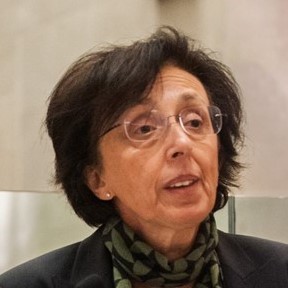
Giulia Galli delivers Nelson W. Taylor Award talk at Penn State (4/11/19)
Prof. Galli gave the keynote address of the 2019 Nelson W. Taylor Lectureship in Materials Science and Engineering at Penn State University. Her talk was titled “Asking ‘why’ matters to predict the future,” and focused on insights and first principles predictions of material properties relevant to energy conversion processes and quantum information technologies.
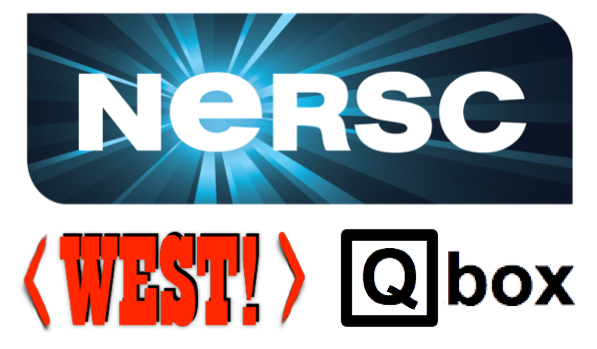
MICCoM teams awarded early access to NERSC Perlmutter supercomputer (3/27/19)
The National Energy Research Scientific Computing (NERSC) center has awarded MICCoM codes WEST (Tier 1) and Qbox (Tier 2) early access and resources on the next-generation Perlmutter Architecture through the NERSC Exascale Science Application Program (NESAP). The new Perlmutter system will be built for NERSC at Lawrence Berkeley National Laboratory, and delivered in late 2020.
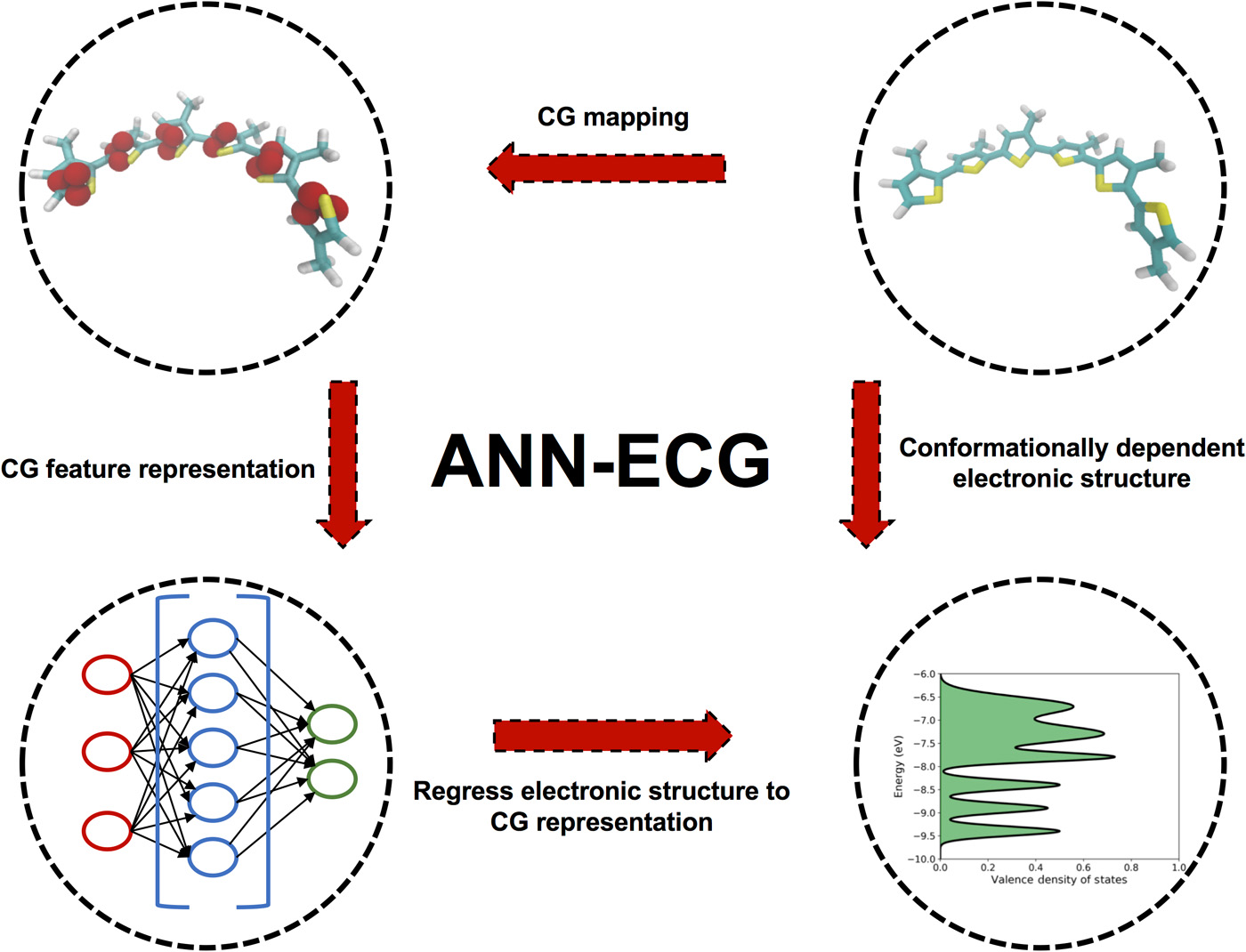
Paper on machine learning electronic structure featured by Argonne and UChicago News (3/22/19)
The Science Advances paper from the group of MICCoM researcher Juan de Pablo, titled "Electronic Structure at Coarse-Grained Resolutions from Supervised Machine Learning," uses artificial neural networks and coarse-graining to compute electronic structure across various conformations. The method finds application in the molecular engineering of organic, flexible electronics.

DOE announces Aurora, USA's first exascale supercomputer (3/18/19)
The U.S. Department of Energy (DOE) and Intel Corporation will build the first supercomputer with a performance of one exaFLOP in the United States. Auora will combine unprecedented processing power with the growing potential of artificial intelligence to help solve the world’s most important and complex scientific challenges. The announcement has been highlighted in UChicago News, the Chicago Tribune and the New York Times.
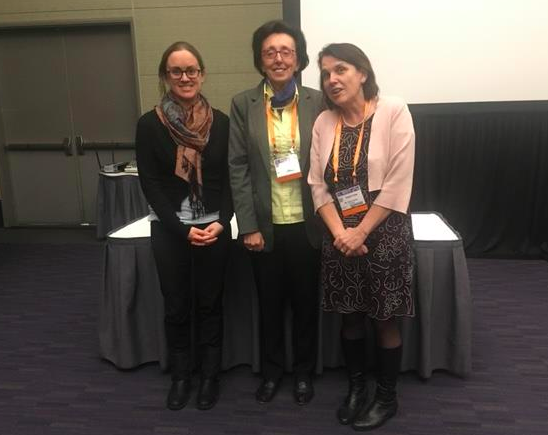
Giulia Galli delivers Materials Physics award talk at APS March Meeting (3/4/19)
Galli was the recipient of the APS David Adler Lecturship Award in Materials Physics . She delivered a talk featuring several MICCoM codes, titled "Sorting through messy semiconductors with first principles calculations." She is pictured together with fellow APS prize recipients Julia Mundy (George E. Valley, Jr. Prize) and Claudia Felser (James C. McGroddy Prize for New Materials).

Paper on data curation and data sharing featured by UChicago News (2/12/19)
The Scientific Data paper by MICCoM researchers including Giulia Galli, Marco Govoni, and Juan de Pablo, is titled "Qresp, a tool for curating, discovering and exploring reproducible scientific papers." Qresp offers a distributed model for intuitive documentation of codes, curation of workflows, and publishing of computational data. It is the cornerstone of the MICCoM data effort. Qresp can be explored and downloaded at http://qresp.org. It was also featured as a MICCoM scientific highlight.

New EFRC on Water featured by Argonne National Laboratory (2/7/19)
The Advanced Materials for Energy-Water Systems (AMEWS) Center is a new DOE Energy Frontier Research Center conducting research that enables the availability of clean water. MICCoM is collaborating closely with AMEWS in both expertise and codes to understand the fundamental behavior of water at surfaces with the development of applications in mind, including water disinfection and catalysts to degrade water pollutants.

Paper on polyelectrolyte complexes featured in Notre Dame News and JACS research spotlights (1/11/19)
The JACS paper by MICCoM researcher Jonathan Whitmer, titled "Role of Associative Charging in the Entropy–Energy Balance of Polyelectrolyte Complexes" uses the SSAGES suite to compute free energy profiles between polymer chains. The conclusions find application in molecular capture and release technology and layer-by-layer assembly of films. It was also featured as a MICCoM scientific highlight.
MICCoM holds Scientific Advisory Board meeting (9/20/2018)
The annual Scientific Advisory Board meeting was held at Argonne National Laboratory. Members of the Scientific Advisory Board met with MICCoM PIs and participants to discuss current work and future directions of the center. Presentations included talks and posters on developments in software, validation strategies, and data infrastructure within the center.

Giulia Galli awarded 2019 David Adler Lectureship Award in the Field of Materials Physics (9/14/18)
The APS David Adler Lecturship Award in Materials Physics recognizes "outstanding contributors to the field of materials physics, noted for quality of research, review articles, and lecturing." Galli has been awarded "for the invention of methods, especially for the enhancement of ab initio molecular dynamics, to understand, predict, and engineer the electronic and structural properties of materials." She will receive the award at the 2019 APS March Meeting in Boston.

Giulia Galli awarded 2018 Materials Research Society Theory Award (9/12/18)
The MRS Materials Theory award recognizes "exceptional advances made by materials theory to the fundamental understanding of the structure and behavior of materials." Galli has been awarded for "the development of advanced first-principles simulation methods and their application to the understanding, prediction, and design of complex nanostructured materials." She will receive the award at the 2018 MRS Fall Meeting & Exhibit in Boston.
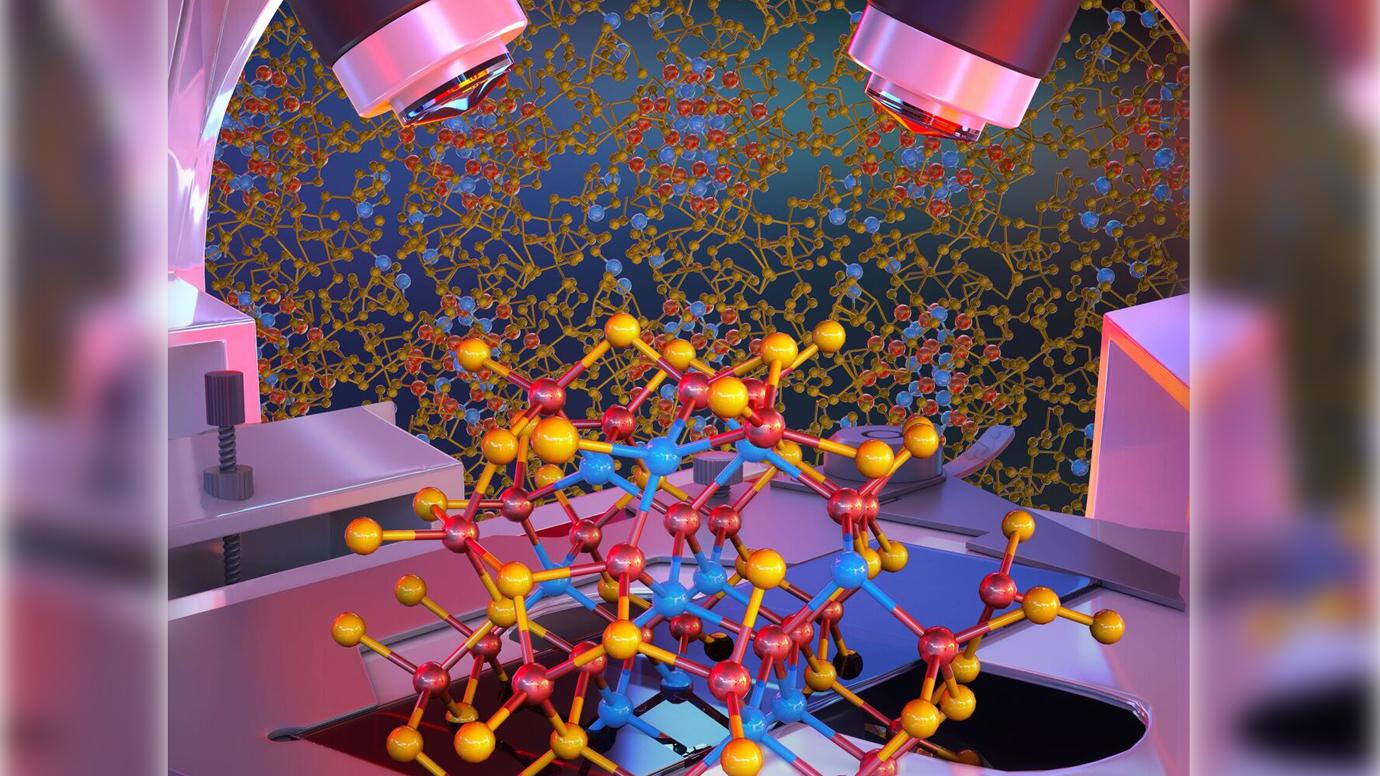
Paper on nanocrystalline solids featured in UChicago News (7/18/18)
The Nature Nanotechnology paper by MICCoM researchers Giulia Galli and Dmitri Talapin, titled "Surface chemistry and buried interfaces in all-inorganic nanocrystalline solids" used the Qbox code to analyze nanoparticles capped with ligands for application in optoelectronic and photonic technologies.

Dept. of Energy taps Argonne to lead effort focused on advanced materials for energy-water systems (7/2/18)
Argonne has been chosen to lead a new Energy Frontier Research Center on the energy-water nexus. Argonne will partner with the University of Chicago and Northwestern University on the four-year project.
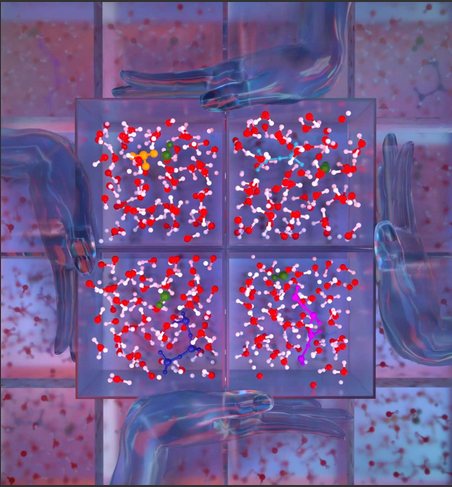
Paper on high pressure water featured in UChicago News (6/20/18)
The PNAS paper, by Giulia Galli, titled "Ab initio spectroscopy and ionic conductivity of water under Earth mantle conditions" uses the Qbox code to analyze water at geophysically relevant conditions.

Launch of Qresp
MICCoM has developed the open source software Qresp: “Curation and Exploration of Reproducible Scientific Papers” to facilitate the organization, annotation and exploration of data presented in scientific papers. Qresp may be used to both curate data presented in scientific papers or explore curated scientific papers.
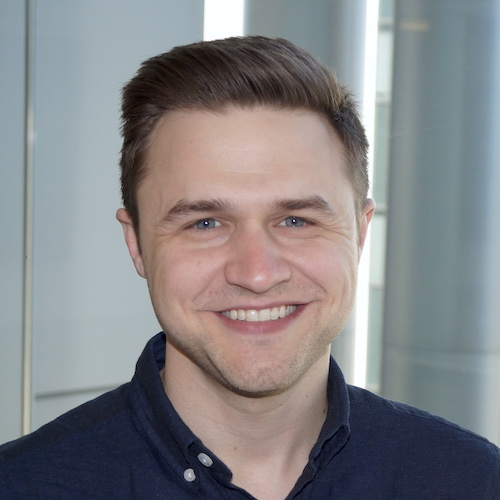
Timothy Berkelbach awarded Sloan Research Fellowship in chemistry (2/15/18)
The Sloan Research Fellowships promote fundamental research by early-career scientists, in recognition of distinguished performance and a unique potential to make substantial contributions to their field. Timothy Berkelbach's research focuses on electronic and optical properties of novel nanoscale materials.
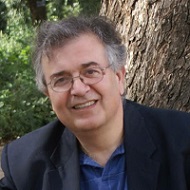
Mercouri Kanatzidis awarded Chemical Pioneer Award by the American Institute of Chemists (2/13/18)
The award recognizes those "who have made outstanding contributions which have had a major impact on advances in chemical science and industry and/or the chemical profession." Kanatzidis was selected to receive this award for his work defining the field of chalcogenide compounds (sulfides, selenides, and tellurides).

Paul Nealey elected to the National Academy of Engineering (2/7/18)
Nealey was recognized "for the development of directed self-assembly of block copolymers as an industrially significant process for nanolithography." His research often collaborates closely with computational efforts within MICCoM.
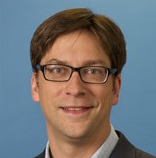
Jonathan Whitmer wins NSF CAREER award (1/26/18)
Whitmer was awarded the NSF's most prestigious award for early-career faculty for "Designing Colloidal Materials By Tilting the Free Energy Surface." The award supports the use of powerful computational modeling to develop a comprehensive picture of the clusters colloidal materials are likely to assemble into, and how specific aggregates may be achieved by modifying the structure and composition of colloidal particles.

SSAGES paper published in J. Chem. Phys. (1/22/18)
Paper on Software Suite for Advanced General Ensemble Simulations (SSAGES) methodology and examples was published, from Juan de Pablo and Jonathan Whitmer research groups.
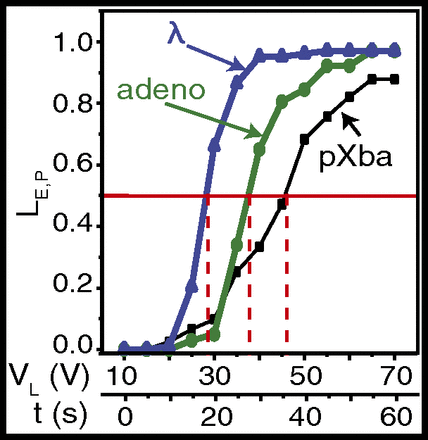
Paper by Juan de Pablo published in PNAS (12/4/2017)
Paper published in PNAS Electrostatic confinement and manipulation of DNA molecules for genome analysis by Juan de Pablo and collaborators, highlights COPPS validation example.
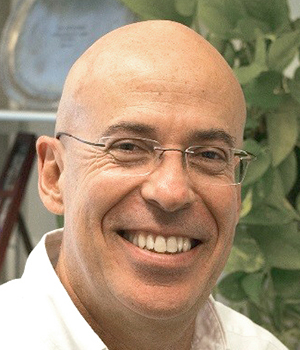
Juan de Pablo Receives 2018 APS Polymer Physics Prize
Professor Juan de Pablo has received the APS Polymer Physics Prize, given annually by the American Physical Society (APS), "for his innovative models and algorithms for the simulation of macromolecular systems." This prize was established in 1960 with The Dow Chemical Company now serving as chief supporter. The prize recognizes outstanding accomplishment and excellence of contributions in polymer physics research. It consists of $10,000 and a certificate citing the contributions made by the recipient. For more information on the APS Polymer Physics Prize, please visit here
.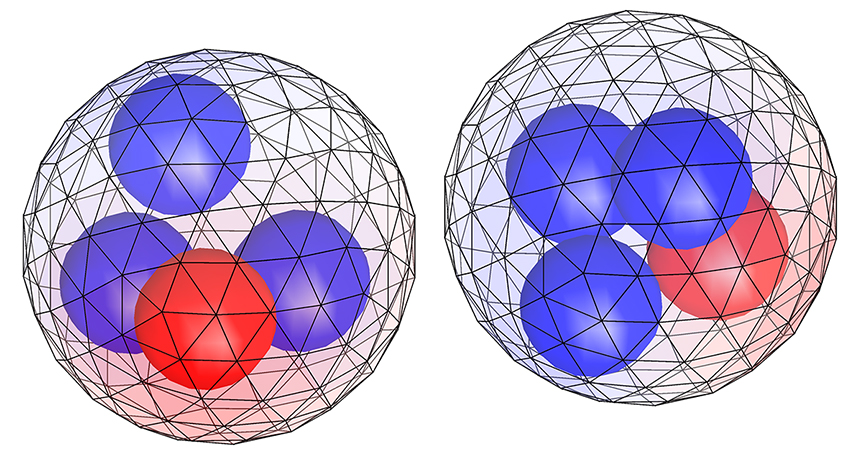
Paper by Olvera de la Cruz published in Phys. Rev. Lett.
Paper published in Phys Rev Lett "Understanding Rare Earth Emulsions" by Monica Olvera de la Cruz and collaborators, highlighted on the DOE office of science home page.
Paper selected as Editor's Choice article by J. Chem. Phys.
The paper entitled "Parallel O(N) Stokes’ solver towards scalable Brownian dynamics of hydrodynamically interacting objects in general geometries" co-authored by X. Zhao, J. Li, X. Jiang, D. Karpeev, and Argonne researchers Heinonen and de Pablo, describes new, highly parallel algorithms (and the corresponding software) for calculation of hydrodynamic interactions in suspensions of nano-and micro-particles. The article has been chosen as a 2017 Editor's Choice article by The Journal of Chemical Physics. The new software is distributed as part of the COPSS suite by MICCoM.
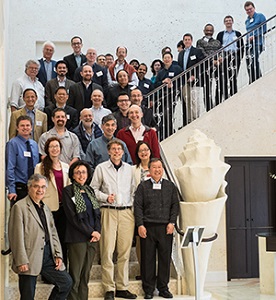
APS launches Physics Next Meetings
A new series of topical workshops hosted by the editors of the Physical Review kicks off with materials design and discovery.
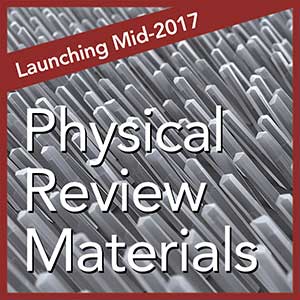
APS launches Physical Review Materials
Giulia Galli has been named to the Editorial Board of Physical Review Materials
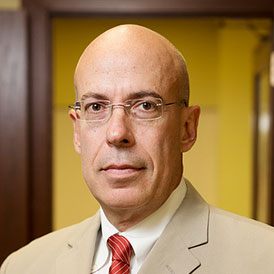
Juan de Pablo elected to the National Academy of Engineering
Juan de Pablo has been elected to National Academy of Engineering, for “design of macromolecular products and processes via scientific computation.”
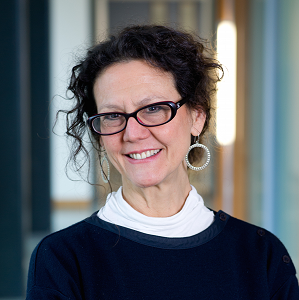
Monica Olvera de la Cruz received the 2017 Polymer Prize of the APS
Monica Olvera de la Cruz has been awarded the 2017 Polymer Prize of the American Physical Society, “for outstanding contributions to the theoretical understanding of polymers, and the effects of electrostatic interactions on their structure and properties.”
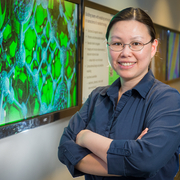
Argonne OutLoud public lecture on Computational Materials Modeling by Maria Chan
Maria Chan recently gave an Argonne OutLoud public lecture on Computational materials modeling at Argonne, entitled "From Atoms to Clean Energy Technologies".
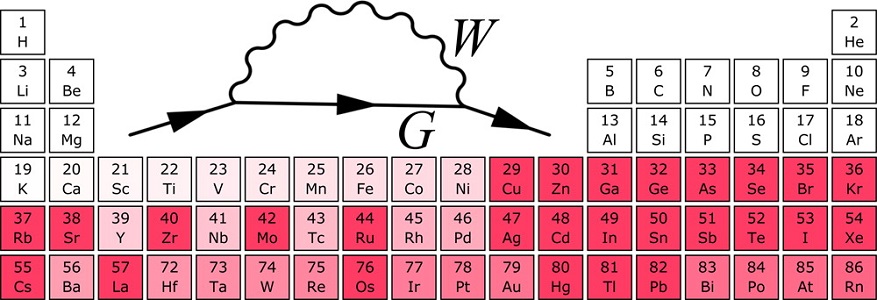
WEST Data Collections are live - 20 June 2016
New WEST Data Collections provide open web-based access to electronic structure properties computed with WEST. Explore the GW100 and GWSOC81 sets.

MICCoM Wiki space - June 2016
A new Wiki space, hosted at the University of Chicago, is now accessible to all MICCoM members, allowing for smooth communications, exchange of ideas and circulation of knowledge within the Center.
ALCC Computational Time Award 2016 to MICCoM members
Marco Govoni and Alex Gaiduk received a 2016 ASCR Leadership Computing Challenge Award

Quantum Science Research website live
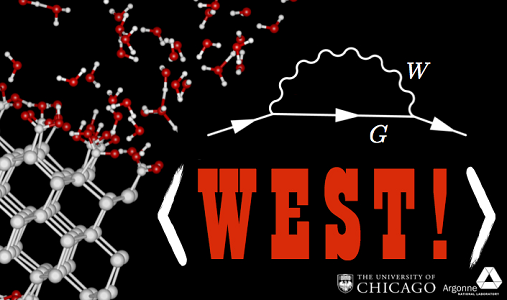
New Release of WEST - April 2016
The WEST code now includes option to obtain optical coefficients of solids and molecules, including local field effects.
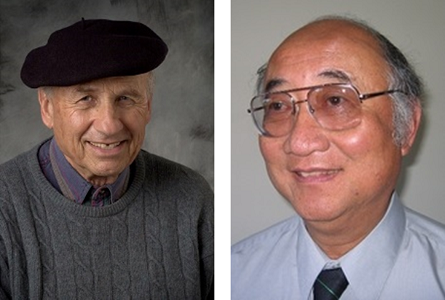
Giulia Galli gives one of the memorial lectures celebrating the 50th anniversary of Kohn-Sham Density Functional Theory
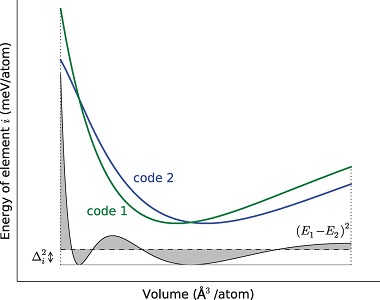
Paper appeared in Science
A paper on "Reproducibility in density functional theory calculations of solids" appeared in Science, with François Gygi as co-author.

2016 James C. McGroddy Prize to Mercouri Kanatzidis
Award Citation: For seminal contributions to the discovery of new families of thermoelectric materials with the highest known figure of merit.

ACS Award in Inorganic Chemistry honouring Mercouri G. Kanatzidis
Award Citation: For pioneering achievements in the development and understanding of metal chalcogenide chemistry.

INCITE computational time award 2015 to Giulia Galli

ESP computational time award 2015 to Giulia Galli

DOE announces Computational Materials Sciences Awards
One of the three centers, MICCoM (Midwest Integrated Center for Computational Materials) is established at Argonne National Lab and is led by Prof. Giulia Galli. MICCoM's mission is to develop open-source advanced software tools to help the scientific community model, simulate and predict the fundamental properties and behavior of nanoscale and mesoscale materials for energy conversion technologies — including metastable materials assembled far from equilibrium conditions.